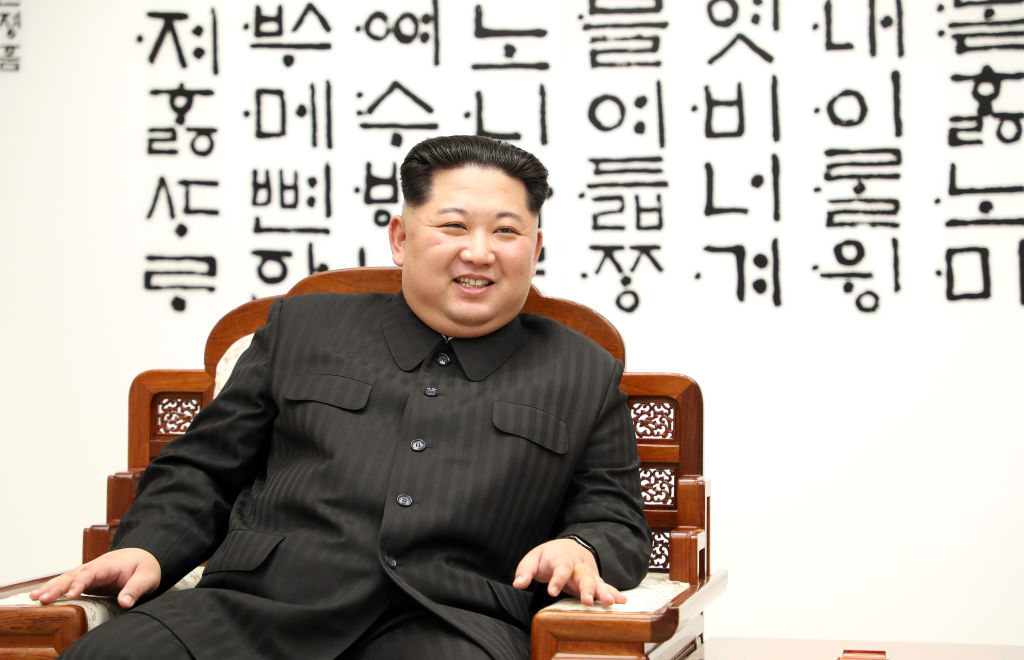U.S. President Donald Trump and North Korean leader Kim Jong-un are currently in town for the much-anticipated summit.
It is going to be held at Capella Sentosa in Singapore tomorrow, on June 12.
Many are hoping for a good outcome, but there are also many naysayers who are not particularly optimistic about the upcoming meeting.
One reason they cite is North Korea's past history of making promises to denuclearise in return for economic gains, only to end up switching gears instead.
As a result, many think that Kim is not to be trusted, and that he is simply playing off the major powers against each other to come out on top.
While what they say may not be without merit, the circumstances surrounding the current situation have largely changed.
Here's why North Korea might actually be serious about talks this time round.
Meeting that seemed impossible 6 months ago
The fact that this is the first ever meeting between a sitting American president and North Korean leader says a lot about the unique circumstances surrounding it.
To Kim, this might be the most opportune time to talk.
Trump's "unconventional" ways were said to have helped push for the meeting that seemed impossible just six months ago.
While previous U.S. administrations had rejected offers from North Korea to talk, finding their commitment to denuclearisation lacking, Trump made the snap decision to agree to talk face-to-face even though he had been exchanging threats with Kim for the past year.
And South Korea had elected a liberal president, Moon Jae In, whose constant efforts in trying to get both leaders to talk have been given much credit as well.
Without them, the meeting might not even have been possible in the first place.
Sue Mi Terry of CSIS, who is also a former CIA analyst, told Axios that North Korea sees the meeting as an "opportunity".
She said:
"I think they see because Trump is so unique and different that if there ever were to be a deal made it could be made with President Trump."
As for Moon, she said that Kim sees "a South Korean president who's willing to look away from the nuclear and conventional threats".
Strength of nuclear capability
The many nuclear and missile tests that North Korea have conducted since the 1980s -- which intensified after Kim took power -- served a purpose.
Each time a missile was fired and a nuclear test conducted, North Korea gets closer to its goal of sending a missile to the U.S. mainland.
And on in November 2017, North Korea announced that already achieved that goal.
 Launching of the Hwasong-15. (Screenshot via Al Jazeera English/YT)
Launching of the Hwasong-15. (Screenshot via Al Jazeera English/YT)
Although economic sanctions by the U.S. and United Nations (UN) did pressure North Korea to the negotiating table, a more decisive reason for North Korea to agree to talk is the fact that the regime has succeeded in its goal of striking the U.S. mainland with nuclear ICBMs (or so it claims).
With greater confidence in its own regime survival, Kim now finds himself in an elevated position that holds greater leverage when it comes to negotiating with other world leaders.
For instance, it is now willing to negotiate with the U.S. without requiring them to withdraw its troops from the South.
[related_story]
Economic reasons
International economic sanctions
That Kim is willing to talk about denuclearisation can be attributed to the US' international campaign to pressure North Korea economically and politically, although not all agree.
The UN also hardened their stance on North Korea, ramping up international sanctions on the already isolated country. Their economic sanctions on North Korea are said to be the largest by far.
Even China, which has historically opposed harsh international sanctions on North Korea and claimed that sanctions do not "offer a final solution to the issue", joined in.
Seeking economic development
Kim also announced that his main focus would be on the economy after he declared the success of his nuclear programme.
He pledged to seek a “favourable” international environment for economic development so that he can put the economy “on an upward spiral track.”
According to Bloomberg, it means he is seeking the help of other countries for developing his economy, including the lifting of economic sanctions that toughened each time North Korea conducts a nuclear test.
Kim then visited China twice within two months, and had a historic meeting with Moon. Russian Foreign Minister Sergei Lavrov also visited Pyongyang.
Kim's forging of diplomatic ties with countries other than China might also be an indication of his desire to be less dependent on China.
North Korean leadership has been trying for decades to reduce its dependence on China, even when promoting the "China-Korea friendship".
Although China does hold some influence over North Korea -- it accounts for more than 90 percent of the latter's trade -- it is unable to determine Pyongyang's foreign policy decision-making.
China's position on North Korea's nuclear programme has also been consistent -- it wants North Korea to denuclearise, something the North Korean regime might not be very fond of.
Therefore, Kim might be looking to diversify his options now, rather than limit himself to just China, with whom he does not see eye-to-eye at times.
Reality check
But then again, no one really knows what the outcome of this meeting will be. After all, it was not even conceivable six months back.
Still, we probably have to be realistic about our expectations for this single meeting.
Pursuing nuclear weapons is in Kim's DNA -- his father and grandfather had both wanted it badly. It is also not easy envisioning Kim giving up his country's nuclear programme without any security guarantee for his regime's survival.
Also, it is not realistic to expect North Korea to give up its nuclear programme now that it has come so close to being able to attach a nuclear warhead to an ICBM.
Guess for now, it's best to wait and see.
Top image via Getty Images
If you like what you read, follow us on Facebook, Instagram, Twitter and Telegram to get the latest updates.
